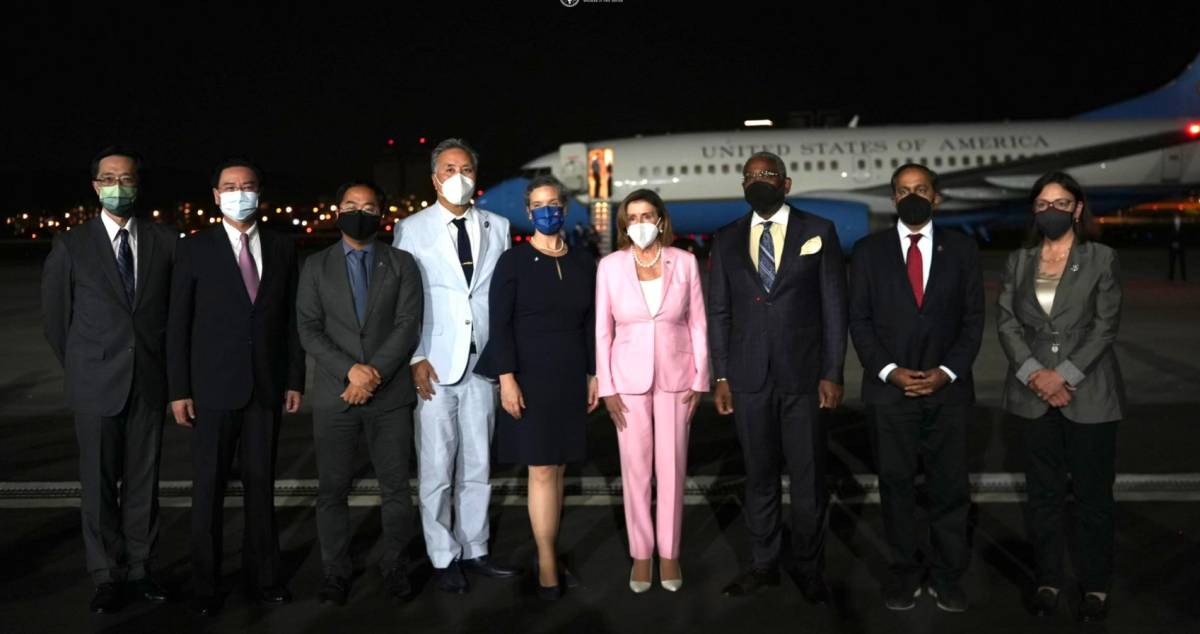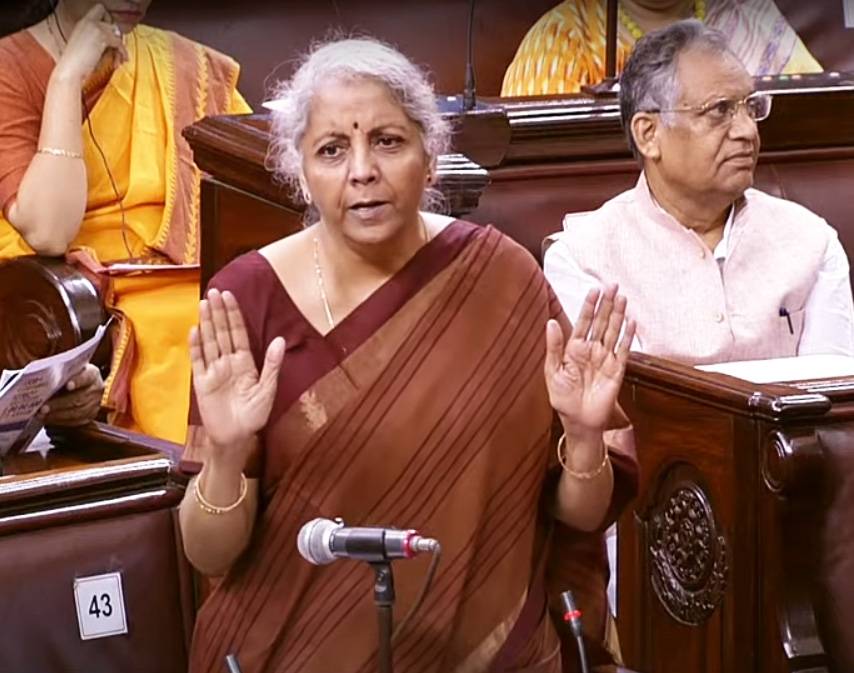China summons US envoy Nicholas Burns to lodge “strong protests” over Speaker of the US House of Representatives Nancy Pelosi’s visit to Taiwan, a self-ruled democracy claimed by Beijing as its own…reports Asian Lite News
An enraged China summoned US envoy Nicholas Burns late on Tuesday night to lodge “strong protests” over Speaker of the US House of Representatives Nancy Pelosi’s visit to Taiwan, a self-ruled democracy claimed by Beijing as its own.
Burns was summoned to the Chinese foreign ministry by vice foreign minister Xie Feng soon after Pelosi’s flight landed in Taipei and as tension mounted between Beijing and Washington over the visit.
Official news agency, Xinhua, announced that Burns was summoned on Wednesday morning.
Burns was “urgently summoned” even as the Eastern Theatre Command of the People’s Liberation Army (PLA) launched a series of joint military operations around Taiwan from Tuesday night, the largest show of Chinese military might in recent years.
The PLA started joint training exercises in the maritime areas off the northern, southwestern and southeastern coasts of the island and their air space, conduct long-range live-fire drills in the Taiwan Strait and conventional missile tests in the waters off the eastern coast of the island, the Chinese defence ministry announced late on Tuesday, voicing its strong opposition against Pelosi’s visit.
At the foreign ministry, minister Xie added to China’s coordinated response.
“Noting that Pelosi risks universal condemnation to deliberately provoke and play with fire, Xie said that this is a serious violation of the one-China principle and the three China-US joint communiques,” China’s official news agency, Xinhua, said in a report early on Wednesday.
“The move is extremely egregious in nature and the consequences are extremely serious. China will not sit idly by,” Xie noted.
“It (the US) deleted the key expressions such as Taiwan is part of China from the US State Department website, put Taiwan in its so-called ‘Indo-Pacific strategy’, openly upgraded its ties with Taiwan and increased arms sales to the region and supported separatist activities for ‘Taiwan independence’,” Xie said.
Using strong rhetoric, Xie said: “Taiwan is China’s Taiwan, and Taiwan will eventually return to the embrace of the motherland. Chinese people are not afraid of ghosts, pressure and the evil”.
Beijing on Wednesday announced a number of economic and trade measures against Taiwan including the suspension of importing citrus fruits, chilled white striped hairtail – a fish that’s widely popular in China — and frozen horse mackerel from Taiwan starting August 3, China’s customs said on Wednesday.
Pelosi addresses Taiwan parliament
Pelosi addressed Taiwan’s parliament on Wednesday and met with its president as well as human rights activists during a visit to the island that has infuriated Beijing.
China condemned the highest-level U.S. visit to Taiwan in 25 years as a threat to peace and stability in the Taiwan Strait, responding with a flurry of military exercises, summoning the U.S. ambassador in Beijing, and announcing the suspension of several agricultural imports from Taiwan.
Pelosi arrived in Taipei late on Tuesday on an unannounced but closely watched trip, saying that it shows unwavering U.S. commitment to the self-ruled island that Beijing says is part of China.
On Wednesday, Pelosi thanked President Tsai Ing-wen for her leadership, called for increased inter-parliamentary cooperation.
“We commend Taiwan for being one of the freest societies in the world,” Pelosi told Taiwan’s parliament.
She also said new U.S. legislation aimed at strengthening the American chip industry to compete with China “offers greater opportunity for US-Taiwan economic cooperation.”
While Pelosi is not the first House Speaker to go to Taiwan – Newt Gingrich visited in 1997 – her visit comes as relations between Beijing and Washington have deteriorated sharply, and with China a much more powerful economic, military and geopolitical force than it was a quarter century ago.
China considers Taiwan part of its territory and has never renounced using force to bring it under its control. The United States warned China against using the visit as a pretext for military action against Taiwan.
Early on Wednesday, China’s customs department announced a suspension of imports of citrus fruits, chilled white striped hairtail and frozen horse mackerel from Taiwan, while its commerce ministry suspended export of natural sand to Taiwan.
A long-time China critic, especially on human rights, Pelosi was set to meet later on Wednesday with a former Tiananman activist, a Hong Kong bookseller who had been detained by China and a Taiwanese activist recently released by China, people familiar with the matter said.
Shortly after Pelosi’s arrival, China’s military announced joint air and sea drills near Taiwan and test launches of conventional missiles in the sea east of Taiwan, with Chinese state news agency Xinhua describing live-fire drills and other exercises around Taiwan from Thursday to Sunday.
China’s foreign ministry said Pelosi’s visit seriously damages peace and stability in the Taiwan Strait, “has a severe impact on the political foundation of China-U.S. relations, and seriously infringes upon China’s sovereignty and territorial integrity.”
Before Pelosi’s arrival on Tuesday, Chinese warplanes buzzed the line dividing the Taiwan Strait. The Chinese military said it was on high alert and will launch “targeted military operations” in response to Pelosi’s visit.
White House national security spokesman John Kirby said on Tuesday after Pelosi’s arrival that the United States “is not going to be intimidated” by China’s threats or bellicose rhetoric and that there is no reason her visit should precipitate a crisis or conflict.
“We will continue to support Taiwan, defend a free and open Indo-Pacific and seek to maintain communication with Beijing,” Kirby told a later White House briefing, adding that the United States “will not engage in sabre-rattling.”
Kirby said China might engage in “economic coercion” toward Taiwan, adding that the impact on American-Chinese relations will depend on Beijing’s actions in the coming days and weeks.
The United States has no official diplomatic relations with Taiwan but is bound by American law to provide it with the means to defend itself. China views visits by U.S. officials to Taiwan as sending an encouraging signal to the pro-independence camp on the island. Taiwan rejects China’s sovereignty claims, saying only the Taiwanese people can decide the island’s future.
ALSO READ-PELOSI VISIT: Pakistan backs China









